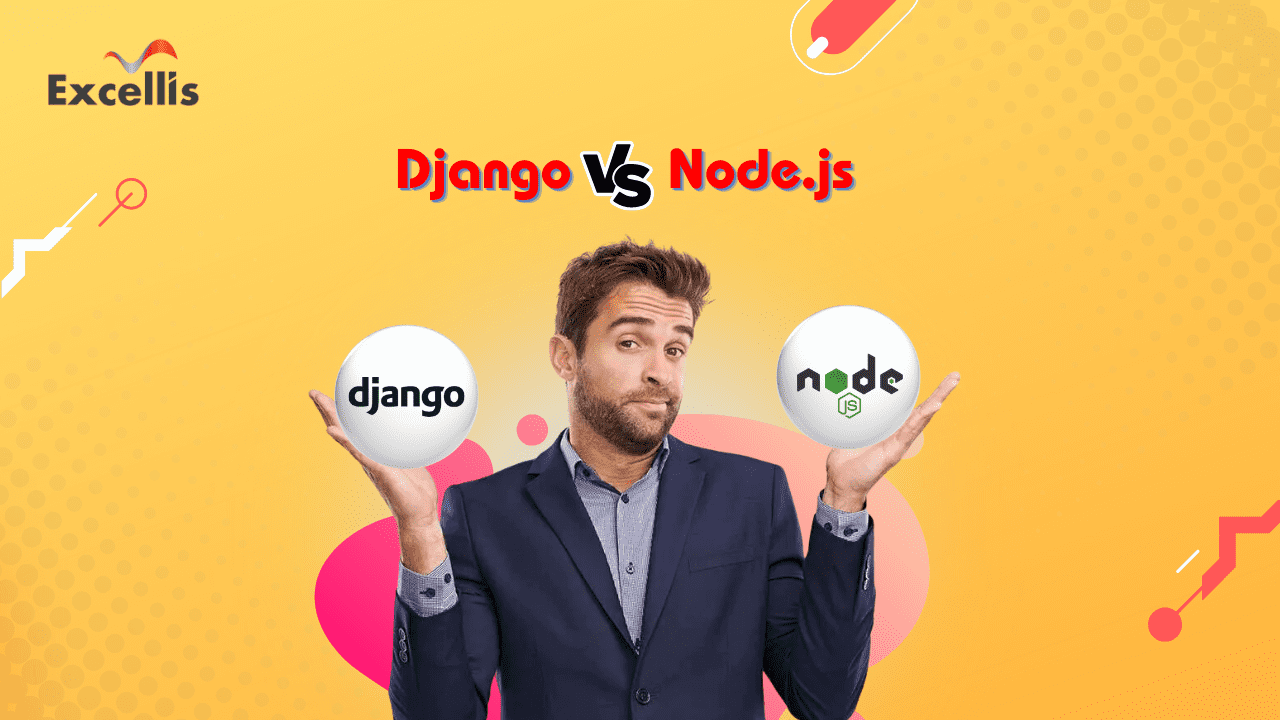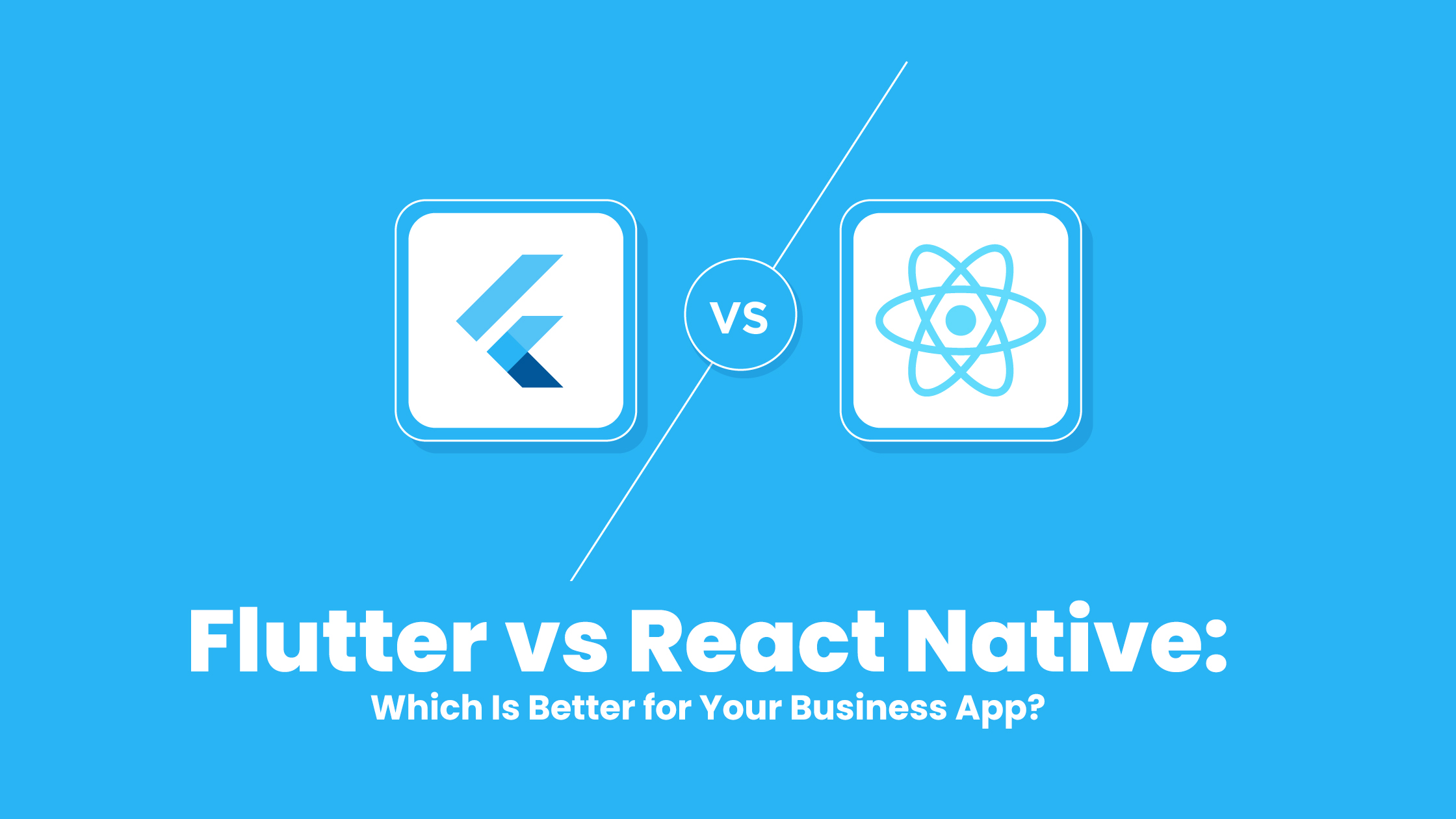
As a developer, one question must be striking your head all the time and that is “What to learn next?”
New technologies are being introduced and replacing the old ones every now and then. In the ever-growing web development industry, every skilled web developer must keep themselves upskilled with the latest technologies.
So, whenever it comes to choosing which back-end framework you should learn and upgrade yourself with, the choices are endless. This article has a detailed discussion and comparison between the two most popular backend development frameworks, Django vs. Node.js to make your choice easy.
So let’s delve in.
Table of context
- Introduction
- Understanding Django
- Key features of Django
- Advantages of Django
- Disadvantages of Django
- Understanding Node.js
- Key features of Node.js
- Advantages of Node.js
- Disadvantages of Node.js
- Basic comparison between Django and Node.js
- Differences between Django and Node.js
- Final verdict
- Conclusion
When it comes to developing a website, choosing the right technology stack is crucial for its success. Among the popular options available, Django and Node.js stand out as powerful frameworks. Both have their unique features and advantages, but understanding their differences can help you make an informed decision. Here, we will compare Django vs. Node.js based on various parameters to help you determine which one is the best fit for your website development needs.
Understanding Django
Django is a high-level Python web framework known for its simplicity and robustness. It follows the Model-View-Controller (MVC) architectural pattern, making it easy to organize and manage complex web applications. Django emphasizes reusability and follows the “Don’t Repeat Yourself” (DRY) principle, enabling developers to build applications efficiently.
Key features of Django
Here are some of the most significant key features of Django:
-
Batteries included
Django provides a comprehensive set of built-in tools and libraries, covering everything from database access to authentication and URL routing. This feature saves development time and effort.
-
Object-Relational Mapping (ORM)
Django’s ORM simplifies database interactions by allowing developers to work with database objects directly in Python code, without writing SQL queries manually.
-
Admin interface
Django offers an automatic admin interface, which can be customized to provide a user-friendly interface for managing application data.
Not an expert in Django? Hire a Django developer in India from the most reliable web development company.
Advantages of Django
Check out the advantages of Django:
-
Rapid development
Django’s high-level abstractions and built-in components enable rapid application development. It provides a solid foundation for building scalable and maintainable web applications.
-
Python ecosystem
Django leverages the vast Python ecosystem, providing access to numerous libraries and packages that can enhance the functionality of your web application.
-
Security
Django incorporates security features by default, including protection against common web vulnerabilities like SQL injection and cross-site scripting (XSS).
Disadvantages of Django
Check out the disadvantages of Django:
-
Learning curve
Django follows specific conventions and has a learning curve, especially for beginners. Understanding its concepts and best practices might require some initial effort.
-
Performance
While Django is highly efficient, it might not be the best choice for extremely high-traffic websites due to its synchronous nature.
Understanding Node.js
Node.js is an open-source JavaScript runtime environment that allows developers to build scalable and efficient network applications. It uses an event-driven, non-blocking I/O model, making it ideal for handling concurrent requests and real-time applications.
Key features of Node.js
Below are the key features of Node.js:
-
Asynchronous programming
Node.js uses non-blocking I/O operations, enabling it to handle multiple requests simultaneously. This feature makes Node.js highly scalable and efficient.
-
Vibrant package ecosystem
Node.js has a vast collection of open-source packages available through the npm (Node Package Manager) registry. These packages provide additional functionality and simplify development tasks.
-
Single-threaded, event-driven architecture
Node.js follows a single-threaded event loop model, allowing it to handle multiple connections concurrently. It excels in building real-time applications that require frequent data updates.
Not an expert in Node.js? Hire a Node.js developer in India from a leading web development company.
Advantages of Node.js
Here are the advantages of Node.js:
-
High performance
Node.js’s non-blocking architecture and event-driven model result in excellent performance, making it suitable for handling a large number of concurrent connections.
-
JavaScript proficiency
If you already have JavaScript knowledge, transitioning to Node.js becomes easier. You can reuse your existing JavaScript skills to develop both front-end and back-end applications.
-
Real-time applications
Node.js is well-suited for building real-time applications, such as chat applications, collaboration tools, social media platforms, and streaming applications. Its event-driven nature allows for seamless communication and data exchange in real time.
Disadvantages of Node.js
Check out the disadvantages of Node.js:
-
Callback-based programming
Node.js heavily relies on callbacks, which can lead to complex and nested code structures. Managing asynchronous operations and handling errors effectively can be challenging for developers.
-
Limited CPU-intensive tasks
While Node.js excels in handling I/O-intensive tasks, it may not be the best choice for CPU-intensive operations. Since Node.js runs on a single thread, CPU-bound tasks can block the event loop and affect the application’s performance.
Basic comparison between Django and Node.js
Below is the basic comparison between Django vs. Node.js:
| Parameters | Django | Node.js |
|---|---|---|
| Programming language | Python | JavaScript |
| Community size | Large | Large |
| Scalability | High | Mid-range |
| Security | High | Medium |
| Performance | Mid-range | High |
| Learning curve | Easy to learn for novices due to the straightforward Python. | Easy to learn but with possibilities of further challenges for novices. |
Django vs. Node.js: Differences between these 2 frameworks
When choosing between Django and Node.js, several parameters come into play. Let’s explore the key aspects where these frameworks differ:
-
Key Aspect
Django: Django is a full-fledged web framework written in Python, offering a comprehensive set of tools and features for building complex web applications.
Node.js: Node.js is a JavaScript runtime environment focused on building scalable network applications, leveraging an event-driven architecture.
-
Language on which the framework is developed on
Django: Developed in Python, a versatile and widely adopted programming language known for its readability and ease of use.
Node.js: Developed in JavaScript, a popular programming language that runs on the client side as well. Using the same language on the front end and back end can streamline development.
-
Architectural pattern followed
Django: Django follows the Model-View-Controller (MVC) architectural pattern, emphasizing the separation of concerns and code organization.
Node.js: Node.js follows a non-blocking, event-driven architecture, allowing for efficient handling of concurrent requests through callbacks and event loops.
-
Complexity
Django: Django provides a comprehensive set of features out-of-the-box, which can make it more suitable for complex web applications. However, this also adds some complexity to the learning curve.
Node.js: Node.js follows a minimalist approach and allows developers to choose the specific libraries and modules they need. This flexibility can simplify the development process, especially for smaller projects.
-
Cost Efficiency
Django: Django is an open-source framework, which means there are no licensing costs involved. It utilizes the Python ecosystem, which offers a wide range of open-source libraries and tools.
Node.js: Node.js is also open-source, making it cost-effective for development. The npm registry provides a vast collection of free and reusable packages, further reducing development costs.
-
Security
Django: Django emphasizes security and provides built-in features to mitigate common web vulnerabilities. It encourages secure coding practices and offers protection against various attacks.
Node.js: Node.js’s security largely depends on the developers’ implementation. While it provides modules and best practices for secure coding, developers need to be diligent in handling security aspects.
-
Applications
Django: Django is well-suited for building content-heavy applications, such as social networking sites, e-commerce platforms, and data-driven web applications.
Node.js: Node.js is ideal for building real-time applications, including chat applications, collaborative tools, and streaming platforms that require frequent data updates and real-time communication.
-
Scalability
Django: Django can handle high-traffic websites efficiently, but its synchronous nature might limit scalability in certain scenarios. Additional techniques, such as load balancing, can help improve scalability.
Node.js: Node.js’s non-blocking I/O model enables it to handle a large number of concurrent connections, making it highly scalable by default.
-
Reputation
Django: Django has a strong reputation in the web development community due to its stability, maturity, and widespread adoption. It is trusted by many large-scale applications and companies.
Node.js: Node.js has gained significant popularity in recent years and has a vibrant and active community. It is widely used by startups, small-scale applications, and companies requiring real-time functionality such as Netflix, LinkedIn, and PayPal.
-
Full Stack Web Development
Django: Django provides a complete set of tools for full-stack web development, including the backend, frontend, and database integration. It promotes a structured approach to building web applications.
Node.js: Node.js can be used for full-stack web development, but it primarily focuses on the backend. It seamlessly integrates with JavaScript frameworks like React or Angular for front-end development.
-
Stability
Django: Django is known for its stability and maturity. It has been around for over a decade, and its extensive documentation and community support ensure a reliable and stable development environment.
Node.js: Node.js has seen rapid growth and development in recent years. While it offers great flexibility and new features, it may have occasional updates and changes that require developers to adapt.
-
Community Support
Django: Django has a large and active community of developers who contribute to its continuous improvement. The community provides extensive documentation, tutorials, and support forums, making it easier for developers to find assistance.
Node.js: Node.js has a thriving community that constantly contributes new packages, tools, and frameworks. The community-driven development ensures a wealth of resources and support for developers.
Final Verdict
After a thorough comparison between Django vs. Node.js, we can see that choosing between these frameworks depends on your specific requirements and project goals. Here’s a summary of their key attributes:
Choose Django if you prefer a full-fledged, feature-rich framework with a focus on rapid development, robustness, and security. It’s suitable for complex web applications and projects that require a mature and stable environment.
Choose Node.js if you prioritize scalability, real-time functionality, and non-blocking, event-driven architecture. It’s ideal for building lightweight, high-performance applications with a strong emphasis on asynchronous programming.
Ultimately, the choice between Django and Node.js should be based on your familiarity with the programming languages (Python vs. JavaScript), the project’s requirements, and the expertise of your development team. Consider factors such as project complexity, performance needs, scalability, and the availability of relevant libraries and tools.
With the right understanding of their differences and considering your specific needs, you can confidently select either Django or Node.js to build a robust and efficient website.
Finishing it up
After a detailed Django vs. Node.js battle, we learnt when choosing between them for your website development, it’s essential to assess their features, advantages, disadvantages, and differences in various parameters. Both frameworks offer unique strengths and cater to different use cases.
Remember to evaluate the complexity of your project, scalability requirements, development cost, security needs, and the expertise of your development team. By making an informed decision based on your specific requirements, you can ensure the successful development of your website.
Category
Featured Posts





More reasons to trust us!
Excellis IT is building a skilled team in IT support, customer support, digital marketing, and back-office services for modern companies.

Excellis it is an esteemed ISO/IEC 27001:2022 certified company

We achieved the prestigious certification by MSME in 2019

We are certified by the Central Vigilance Commission

We are an honoured members of NASSCOM since 2022

